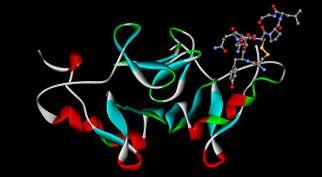Haifa researchers cite ‘love hormone’ to prove differences between sexes
In the current study, conducted with the help of research students Meytal Fischer-Shofty and Yechiel Levkovitz, researchers tried to find out what effect Oxytocin would have on women’s and men’s accurate perception of social interactions.
Sixty-two men and women aged 20-37 years participated in the current research. Half of the participants received an intranasal dose of Oxytocin while the other half received a placebo. Following treatment, video clips showing various social interactions were screened. Participants were asked to analyze the relationships presented in the clips by answering questions that focused mainly on indentifying relationships of kinship, intimacy and competition. Participants were expected to base their answers, among other things, on gestures, body language and facial expressions expressed by the individuals in the clips.
The results showed that Oxytocin improved the ability of all the participants to better interpret social interactions in general. When the researchers examined the differences between the sexes they discovered that following treatment with Oxytocin, men’s ability to correctly interpret competitive relationships improved, whereas in women it was the ability to correctly identify kinship that improved.
“Our results coincide with the theory that claims the social-behavioral differences between men and women are caused by a combination of cultural as well as biological factors that are mainly hormonal,” says Shamay-Tsoory.
Viva Sarah Press

